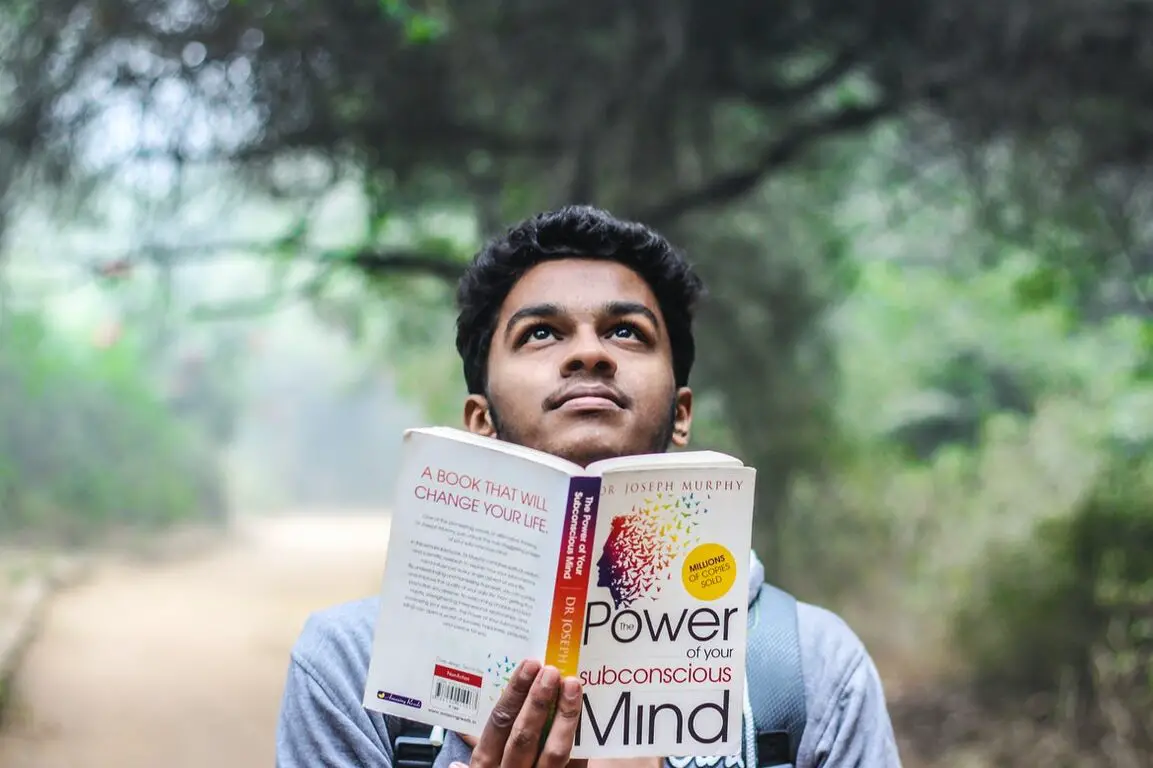
Reading self-help or self-development books don’t work in the following 6 situations:
- Not using right: It’s not a novel
- Poor experience: Not all shiny is good
- Poor advice: Watch out!
- Unfair advantages: We are different
- Not applying: Less is more
- False hope syndrome: Be careful what you wish for
Reading self-help or self-development books work, it really does. But if you think it’s not working for you, then it has to be because of one or more of the above-mentioned reasons.
Personally, I wasn’t a good reader myself, not even close. The only books I read were only those related to my medical degrees.
Three years ago, the floodgates opened, and it started with the Getting Things Done – GTD audio book which changed my life completely.
Now I’m a coach, a youtuber, on top of being a full-time occupational physician in a large company, and a full-time parent because of GTD.
Then, snowballing took place and I listened to “seven Habits of Highly Effective People”, then “mindset: new psychology of success” then “starts with why” and all had a similar life changing impact
Then I went on a mission and speeded up my reading to listen to a self-help audiobook every week throughout my commute to work.
The conversation that woke me up (recommended but skippable if you’d like)
A year ago, my wife and I were going out with another couple and the husband worked as a Tai-Chi trainer.
At one point he mentioned that he advised his wife to stop reading self-help books as a treatment to her stress that time. It felt awkward to me, so I had to ask him about that, and we had the following conversation:
Me: why did you do that? I think reading is helping specially if it’s self-help books to overcome her problems
Friend: how frequent do you read?
Me (responded proudly): four or five books a month
Friend smiling: why do you read four or five books a month?
Me: it’s simple, reading is leading. I tested it myself. The more I read the more I know and the better I become, and the better I feel”
Friend: So just knowing more makes you “become” better and that’s why you feel better?
Me: Of course not, you have to app……..(silence)
I paused for seconds but it felt like hours to me because I looked back on my reading journey in the past three years, and I discovered 2 shocking facts about my self-help books reading journey:
1st Shocking fact:
The books that actually transformed my life were those which I read then applied the content before moving to the next book
So, with the GTD audiobook, I listened to it 3 times with me applying the content in the third time section by section.
I did the same with the “mindset”, “seven Habits of Highly Effective People” and “start with why” books. Listening 1-2 times with studying the notes and identifying areas to apply what I have learnt.
I also remembered that in my 1 book/week phase, I came across 2 interesting books “how to talk to kids” and “the total money makeover”. Both books were very interesting and full of information and practices
I remembered that I applied the same strategy of listening once more with spending time in applying and they took my “parenting” and “finance” to the next level.
2nd shocking fact:
All I remembered in my 1 book/week phase is the perfect mood while and after listening to these books, and that I kept going like this cause it made me feel good, and sometimes high
Also I remembered that it gave me information that I used to tell others whenever it was applicable, so it made me look informed.
So, Facts and Feelings. These are what I got out from the 1 book a week journey which is good if I was reading for these 2 goals which I wasn’t. I was reading for the 3rd type of reading which is self-development.
To understand more about the reading types and rules for effective reading and results, you can check “2 Rules For Reading Effectively For Strong Outcomes“
Reasons why it’s not working and how to fix them
1- Not using them right: It’s not a novel

Any tool is only as good as how you use it and reading self-help books as a tool to upgrade your wellbeing and improve your life needs to be used right.
With self-improvement books, you have to treat them like manuals. You read them cover to cover to understand everything, then you get back to the beginning to follow the instructions in each section.
Then you keep them as reference for each time you want to check a specific section.
one day at work, I met a colleague in the cafeteria, and we talked for a while about productivity, and I mentioned my experience with GTD, and his response was “yeah, I know about GTD, I have READ the book. It’s great”
It turned out that he just “read” the book and moved on to the next. He treated it like a novel, not even studied it.
Ever since this conversation and in my coaching sessions I ask about the books the client read and found useful on the topic, then ask how he/she used it.
Did they use it as a novel or as a manual?
How to fix this?
1- Identify the goal of reading the self-help book. Is it to have information or to improve yourself?
2- Choose the right reading strategy according to your goal. If it’s information, then no harm in “just” reading cover to cover. If it’s for improvement, then treat it like a manual as explained above.
Related article worth checking: Is Spending Money On Books Worth It? (How Much Is Wise)
2- Poor experience: Not all shiny is good

This is not a major cause, but still counts in my opinion. If you have a poor experience with the book, then you’re most likely to drop on the change you were seeking.
This can be because the book is lengthy, redundant, poorly written, or poorly structured.
The Mindset book for example by Carol Dweck, has an important concept to convey which is having a growth mindset, but it is full of redundancy and is too long for that message. In my opinion it could have been in half or even less the amount.
An observation I see is that not all popular books necessarily provide good experience. Many of the popular books are either too long, poorly written, or poorly structured still.
Examples of non popular life changing books in my experience are:
- Change your questions, change your life: awesome book about importance of using questions in personal and professional life, written in a story format and provides application along the way.
- How to talk to kids so they listen: an amazing book about parenting that describes different actions you can do to be a better parent with exercises to follow.
- The total money makeover: very powerful book to improve your finance as of today regardless of how wealthy you are. It’s mainly targeted to the saving aspect.
How to fix this?
1- Read reviews about the book and look for patterns
2- Use different format if available. You can use the audiobook instead to speed up the narration if it’s necessary but redundant (like my mindset book experience, it was hard to read it, so I listened to it).
3- Poor advice: Watch out!

It goes without saying that following a poor or wrong advice, will only result in a poor or a wrong result.
Poor advice in self-improvement books can be because of not experienced or licensed author about the topic, or faulty information, or too generalized advice, or too specific advice.
The one that I see most common is the too generalized advice that isn’t effective like eat well and exercise enough or the too specific advice that isn’t suitable for everyone like lose carbs and do cardio for 150 minutes a week without clarifying who this is suitable for.
The others aren’t so common in my experience, but I’ve seen reviews about them for different books.
How to fix this?
1- Check the author credibility before working with the book
2- Read reviews about the book and look for patterns
4- Unfair advantages: We are different

You read self-help books to learn from persons that went from zero to hero in their journey in a particular subject.
You want to know how they became healthy, or wealthy, or productive, or better parents, or famous, etc.
And for most of those persons, there are one or more advantages they had that contributed to some degree to their successes.
Those advantages differ from one person to another, and most likely you won’t have the same advantages that the author had, and so you think it’s a different environment which will lead to different results, so you’re over before you know it.
According to Ash and Hasan, authors of the unfair advantage book, there are 5 unfair advantages that contributes to the success of others, and I add one to them.
The Unfair advantages others can have that facilitates in easier success are:
- Money:
If you’re born within a rich family then obviously you can have the power to buy things or start a business quicker.
- Intelligence and insights:
Some success stories involve persons with high IQ or advanced skills that enabled them to build software and successful programs easier.
- Location and luck:
Being in the right place could be a successful factor, like being in Silicon Valley or in a capital city for example for startup companies and opportunities
It was luck that made me hear my friend talk about GTD which lead me to learn that methodology and achieve all this.
- Education and expertise:
Having an education from a certain college or institutes can have bigger influence on your success.
- Status:
Having powerful status have more influence on your success. Elon Musk have so powerful status that he can start any business with any name and still succeed or at least have more attention.
Starting a business is easier if you’re single than being married with kids cause you have more risks.
- Talent:
This is added by me to the ones above by Ash and Hassan. Although I believe talents can be acquired but having a certain talent in something could be the boost that caused you to be a successful pianist or artist or player, etc.
How to fix this?
1- Put in the work and learn:
Putting in the needed work and learning are still the most important factors in success. Persons with the above unfair advantages still worked hard and learnt to get to where they are now.
2- Look for your unfair advantage:
You have to know that all of us have one or more unfair advantages that we have to identify and use in our favor
5- Not applying: Less is more

This is the biggest reason why reading self-help books don’t work for you. It’s because you’re not applying what you are learning from these books.
Throughout my wellbeing coaching experience, I always find that those I’m working with are well informed about the topic we’re having coaching sessions for.
The thing they have in common is having more information and less application, and therefore less transformation.
This can be that you’re not applying at all or not applying enough to be in the Competent apply step in the ladder to mastery.
Reference to the ladder to mastery, not applying makes you stay in the 3rd step of the ladder with information and self-doubting, and that’s why “just” reading self-help books can be stressful.
Also not applying enough leaves you in the 4th step of incompetent apply with the stressor of self-criticism and you don’t want to be there either.
Check the article “ The Ladder of Mastery” to understand more about the 5 steps you go through from 0 to mastery with any tool in life.
How to fix this?
1- Choose the right reading rule:
Use the more is more if you’re looking to have information, and use less is more if you’re looking to improve yourself. You can check “2 Rules For Reading Effectively For Strong Outcomes” for more information.
2- Apply as soon as possible
After you check “the ladder to mastery” article, you’ll know that reading will only get you to the 3rd step of the ladder and only applying will get you to the 5th and final step of being a master.
6- False Hope Syndrome: Be careful what you wish for

Another reason why self-help books don’t work, is because they often provide you with unrealistic expectations to the journey or you generate them for yourself, so you have what Polivy, J., and C. P. Herman call false hope syndrome. (1)
There are 4 unrealistic expectations that we are talking about: speed, ease, amount, and reward
- Speed: you overestimate the speed of change. You start a dieting program, and you expect that you’ll see results in just a month for example, when it actually needs 3.
This is not true. Installing a new habit takes time, specially if it’s replacing an old bad one.
- Ease: you think change is going to be easy with no or little challenges. You think losing weight is going to be smooth with no mood swings or weakness challenging times.
Again, not true at all. Self-improvement journey is a bumpy one that needs special preparations, tools, and vehicles.
- Amount of change: you imagine that the outcome will be huge. Like thinking you’ll lose 20% weight in your first round for example.
- Reward: you over expect that the improvement you’ll make will not only affect your habit but your life. Like thinking that losing weight will not only make your body looks good but also will get you your dream partner.
To demonstrate how reading self-help books can do that, you can check my story above.
I told you about how GTD changed my life and the results I have because of it, but I never told you how long it took me to reach this
By the way, it’s around 4-5 months to have it under cruise control then another 6 months of mastering it before I was able to expand
I didn’t mention how I still fall out of the wagon with parenting and that I still check my manuals to self-correct but it’s true.
That’s why, when you read a self-development book, it or you as a result, can have one or more unrealistic expectation about the journey, causing the change to fail.
How to fix this?
1- Use self-affirmations
You have to acknowledge, believe, and be aware that change is going to be hard but not impossible, it’ll be slow but moving, it’ll be challenging but achievable, it’ll be for its own purpose
2- Be realistic with your goals
I have to admit and clarify that when reading about goals have to be S.M.A.R.T. It’s not quite known how it can be applied to self-improvement goals, specially with the R (Realistic).
That’s because it’s hard for you to know which goal is considered realistic, should you aim for 5% weight loss or 3 or 2 or maybe 1?
For that I do the following:
- Consult with an expert in the area. It can be a fitness coach, a financial coach, a relationship coach or therapist, etc.
- Look for averages around you or over the internet if available. See what is considered average if wanting to lose weight and aim lower at first.
- If above not available or not applicable, I always start as low as I can and upgrade it as I progress.
So, you can start your weight loss with a goal of losing 1kg in 1 or 2 months, then learn from your journey to achieve that goal and modify the upcoming ones.
References
(1) Polivy, J., and C. P. Herman. “If at First You Don’t Succeed: False Hopes of Self-Change.” American Psychologist 57 (2002): 677–89